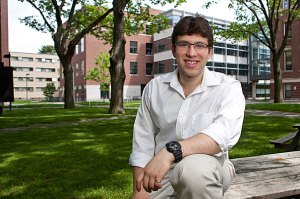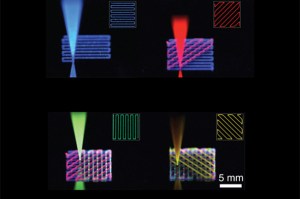Tag: Caroline Perry
-
Science & Tech
A versatile vessel for next-gen therapeutics
The startup company Vesigen will develop and commercialize the drug-delivery technology created in the lab of Harvard Chan School Professor Quan Lu.
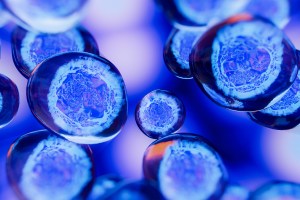
-
Science & Tech
Study looks to genome editing to treat deadly degenerative disorder
Harvard stem-cell research receives support from Sarepta Therapeutics for work on Duchenne muscular dystrophy.
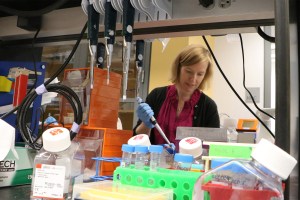
-
Science & Tech
A platform for rapid innovation
Harvard’s Office of Technology Development has established a collaborative research agreement with Facebook, which establishes a platform to quickly and easily pursue joint or sponsored research projects with the company.
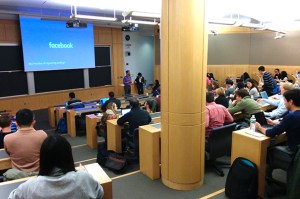
-
Health
Tackling blood diseases, immune disorders
Startup Magenta Therapeutics licenses technologies from Harvard, Massachusetts General Hospital, and Boston Children’s Hospital that could help transform treatment.
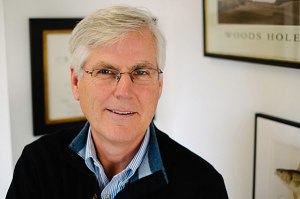
-
Health
Harvard licenses genotyping platform
Harvard University has granted a license to Aldatu Biosciences Inc., an early-stage diagnostics development company, for a novel genotyping platform that may help clinicians treating HIV to determine more quickly the most effective medication for each patient.
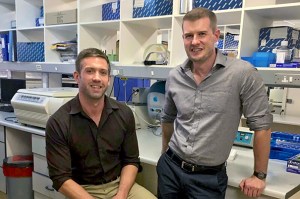
-
Science & Tech
Advancing ingenuity
Between academic discovery and product development lurks a lull in research funding that inventors call the “chasm of death,” where a prototype or a proof of concept can feel just…
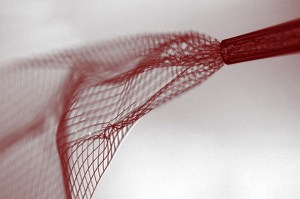
-
Health
Our blood, ourselves
Two Harvard-trained researchers, who bonded while battling epidemics in West Africa, are developing diagnostic technology to help women monitor their own health and fertility.
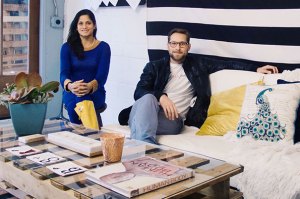
-
Science & Tech
Leading through impact
For Harvard computer scientists, entrepreneurship is often a fulfilling extension of their cutting-edge research.
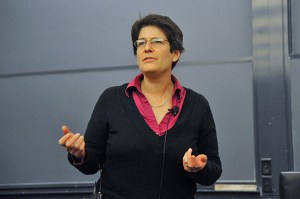
-
Health
A bridge for promising research
Twelve advanced research projects aimed at developing new therapies and diagnostics receive support from Harvard’s Blavatnik Biomedical Accelerator.
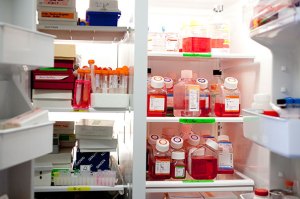
-
Science & Tech
Accelerator Fund boosts Harvard tech startups
At Harvard, the Accelerator Fund boosts technologies in engineering and physical sciences, and helps launch companies in robotics, 3-D printing, and materials discovery.
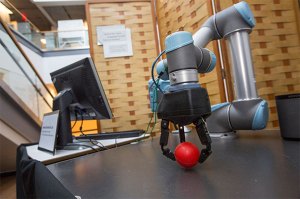
-
Science & Tech
Keys to a split-second slime attack
Researchers from the Harvard School of Engineering and Applied Sciences and from universities in Chile, Costa Rica, and Brazil have been studying the secret power of the velvet worm.
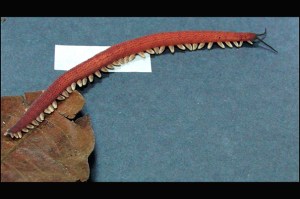
-
Science & Tech
Crafting ultrathin color coatings
In Harvard’s high-tech cleanroom, applied physicists produce vivid optical effects — on paper.
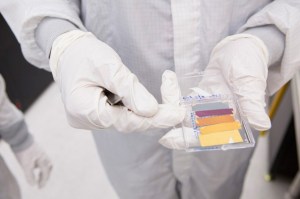
-
Science & Tech
Where ideas trump devices
At the annual CS50 Fair, students of history, literature, music, and more create tools to share knowledge across fields.
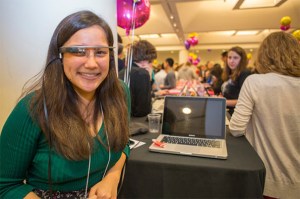
-
Science & Tech
Have silicon switches met their match?
Silicon has few serious competitors as the material of choice in the electronics industry. Now, Harvard researchers have engineered a quantum material called a correlated oxide to perform comparably with the best silicon switches.
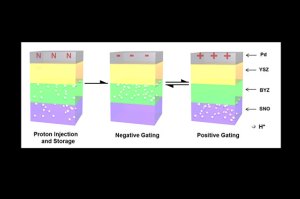
-
Science & Tech
The 1,000-robot swarm
Harvard researchers create a swarm of 1,000 tiny robots that, upon command, can autonomously combine to form requested shapes — a significant advance in artificial intelligence.
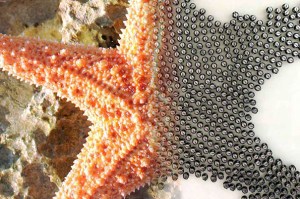
-
Health
A malignant ‘switch’ in breast cancer
A team of researchers led by David J. Mooney, Robert P. Pinkas Family Professor of Bioengineering at the Harvard School of Engineering and Applied Sciences, has identified a possible mechanism by which normal cells turn malignant in mammary epithelial tissues, those frequently involved in breast cancer.
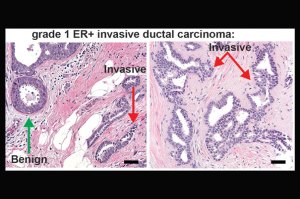
-
Science & Tech
When engineering meets art
Music blared, LEDs blinked, and jaws dropped Tuesday at the SEAS Design and Project Fair, a celebration of creative problem-solving by students at the School of Engineering and Applied Sciences…
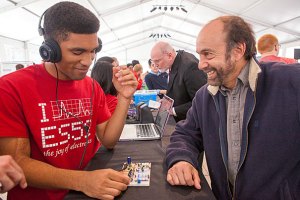
-
Science & Tech
Robots to the rescue
Inspired by termites’ resilience and collective intelligence, a team of computer scientists and engineers at the Harvard School of Engineering and Applied Sciences and the Wyss Institute for Biologically Inspired Engineering at Harvard University has created an autonomous robotic construction crew. The system needs no supervisor, just simple robots that cooperate.
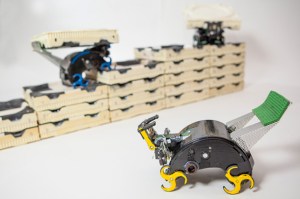
-
Campus & Community
Science and delight, in the blink of an eye
The Harvard School of Engineering and Applied Sciences hosted an annual tradition, a holiday lecture for children on how science works.
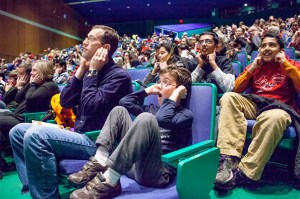
-
Science & Tech
U.S. methane emissions exceed government estimates
Emissions of methane from fossil fuel extraction and refining activities in the United States are nearly five times higher than previous estimates, according to researchers at Harvard University and seven other institutions.
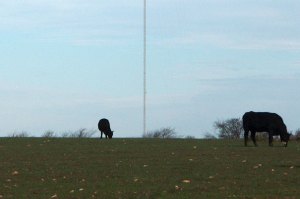
-
Science & Tech
Engineering a better life
When Kathy Ku ’13 proposed to build a water-filter factory in Uganda for $15,000 last year, her contacts advised her to double her budget. If all goes to plan, by next August Ku and her classmates will have created a fully functional and self-sustaining water-filter factory, supplying clean water at half the cost of imported…
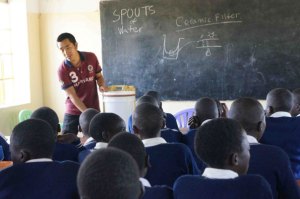
-
Science & Tech
National parks face dangerous foe
Thirty-eight of the United States’ national parks are experiencing “accidental fertilization” at or above a critical threshold for ecological damage, according to a study led by Harvard University researchers and published in the journal Atmospheric Chemistry and Physics.

-
Science & Tech
Where students own their education
The class Applied Physics 50 is grounded in a teaching philosophy that banishes lectures and encourages hands-on exploration, presenting a collection of best practices gleaned from decades of teaching experience and studious visits to college physics classrooms nationwide.
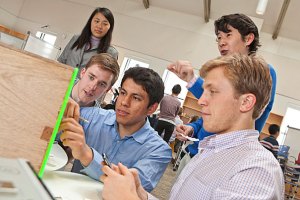
-
Science & Tech
Advancing science and technology
The National Science Foundation is awarding grants to create three new science and technology centers this year, with two of them based in Cambridge. The two multi-institutional grants total $45 million over five years.

-
Science & Tech
Transparent artificial muscle plays music
Using a gel-based audio speaker, Harvard researchers have shown that electrical charges carried by ions, rather than electrons, can be put to meaningful use in fast-moving, high-voltage devices.
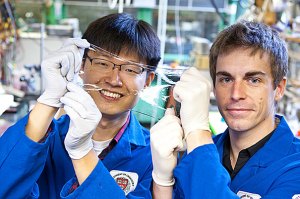
-
Science & Tech
Wildfires projected to worsen with climate change
A Harvard model predicts that by 2050, wildfire seasons will be three weeks longer, up to twice as smoky, and will burn a wider area in the western United States.

-
Science & Tech
Seeing depth through a single lens
Researchers at the Harvard School of Engineering and Applied Sciences have developed a way for photographers and microscopists to create a 3-D image through a single lens, without moving the camera.
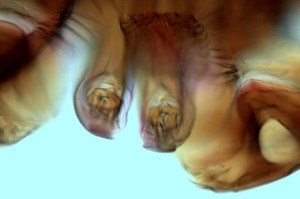
-
Campus & Community
A globe-trotter, by design
School of Engineering and Applied Sciences graduate William Marks departs Harvard with a hat trick of achievements: a Fulbright Scholarship, a Gates Cambridge Scholarship at Cambridge University in England, and an offer of admission to Harvard Business School’s 2+2 M.B.A. program.
